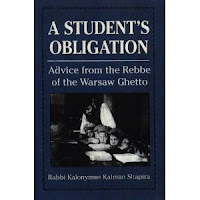The excerpt below is from, Song of Teshuva, a commentary on Rav Kook’s Oros HaTeshuvah by Rav Moshe Weinberger and adapted by Yaacov Dovid Shulman.
The currents of teshivah- of the individual and of the community- surge forward.
This image of teshuvah as a flowing river comes from a passage in the Zohar: “There is a hidden place, which is the depth of the well. And from it rivers and springs stream to every direction. And that deepest of all depths is called teshuvah” (Acharei Mos 70).
A related idea is coveyed in by the fact that the Hebrew word for “river”, nakhal, is an acronym of the phrase, “nafsheinu khiksa laShem– “our soul hopes for Hashem” (Tehillim 33:20).
The currents of teshuvah flow- within the individual, community and the entire Jewish people- in the form of an inclination to chagne and improve.
Thus, the Gemara teaches that every day a heavenly echo calls out, “Return to God” (Pirkei Avos 6:2 and Hagigah 15a). The Baal Shem Tov explains that this echo is not a loud proclamation, but our inner awareness of teshuvah calling to us.
Rav Kook believed that despite its many detours and difficulties, the world is spiritually improving, and he refused to accept a dark, negative and pessimistic outlook. He saw this return to God as being woven into the very texture of the universe. This view is not unique to Rav Kook. Thus, when people told the R. Yisrael Meir Kagen, the Chofetz Chaim, that the Balfour Declaration marked the beginning of the redemption, he demurred and replied that Creation itself marked the beginning of redemption. (Pages 106-107)








